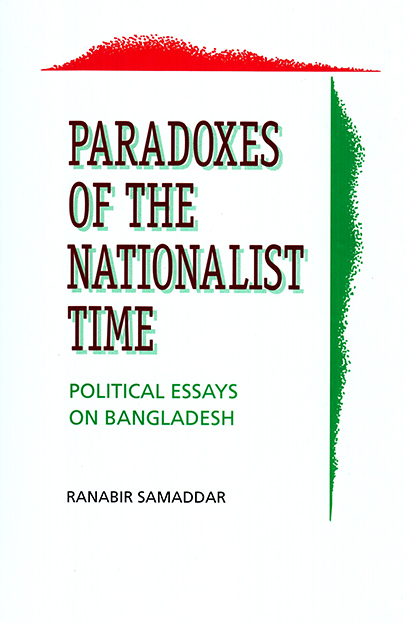- Shop
- Paradoxes of the Nationalist Time: Political Essays on Bangladesh
Paradoxes of the Nationalist Time: Political Essays on Bangladesh
https://uplbooks.com/shop/9789840516346-paradoxes-of-the-nationalist-time-political-essays-on-bangladesh-3036 https://uplbooks.com/web/image/product.template/3036/image_1920?unique=90f5a49
| Language: English |
Tags :
Book Info
These essays show that contrary to the widespread belief, nationalism is not all about the celebration of territory as a marker of identity and power; it is also about time in a fundamental way. The anxiety over time is as fundamental as the one over space. Indeed space appears as one in the distribution of the elements that go into making the time of nationalism. The author contends that, each time the nationalist destiny of Muslim Bengal took a clearly discernible turn, it seemed to the actors as final and irrevocable?the actors of 1937, 1947, 1954, 1957, or 1971. But in each instance it was a case of time playing with its finality, taunting it, mocking it, bringing forth in front of its final version its earlier and later incarnations. In this sense, the history of nationalism is not something that can be termed as the "the foreshadowing of the nation". Samaddar argues, if what preceded 1971 could be viewed as foreshadowing the great event, there was many convolutions as opposed to evolution. What foreshadowed 1971 was not only in terms of an outcome, but its future?the exasperating uncertainties of the nationalist destiny in its encounter with democracy. Democracy has always presented a different set of morals that have interrogated nationalism. Nationalism can never escape this encounter for its greatest claim has been that it is democratic. All this is evident from the recent history of Bangladesh?the most singular, the most recent, and the most homogenous nation in the region. Also it is a country where the moral interrogation of the ideal of nationalism has gone farthest. Therefore in these essays, time before 1947 and after, and the time when icons were not icons and the time when icons lay under the blows of the iconoclasts, lie wrapped in a single format often indistinguishable from each other.

Ranabir Samaddar
Ranabir Samaddar is currently the Director of the Peace Studies Programme at the South Asia Forum for Human Rights, Kathmandu. Earlier he was a professor of South Asian Studies in the Maulana Abul Kalam Azad Institute of Asian Studies, Calcutta. A well-known scholar of South Asian politics, he is the author of a three volume study of nationalism in South Asia – A Biography of the Indian Nation (2001), The Marginal Nation: Transborder Migration from Bangladesh to West Bengal (1999), and Whose Asia is it Anyway? Region and the Nation in South Asia (1996). He has also written extensively on the partition of Bengal.



